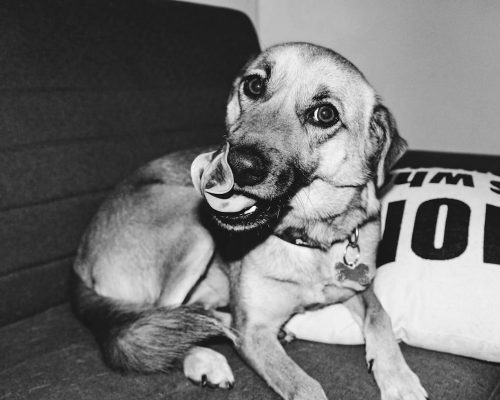The Dachshund dog breed, affectionately known as the “sausage dog” or “wiener dog,” is one of the most iconic and adored canine breeds.
With its distinct long body, spirited personality, and unwavering loyalty, this dog breed captures hearts across the globe.
Beyond their adorable looks, Dachshunds have complex needs, making it essential to understand their temperament, grooming requirements, and overall care. Here’s everything you need to know.
Table of Contents
ToggleOrigin and History of the Dachshund Dog Breed
The Dachshund originates from Germany, where its name translates to “badger dog” (Dachs meaning badger, hund meaning dog). Bred as far back as the 15th century, these dogs were developed to hunt badgers, rabbits, and even wild boar.
Their small stature and fearless demeanor made them perfect for tunneling underground to flush out prey. By the 19th century, Dachshunds became popular as family pets and show dogs across Europe and the United States.
Distinct Physical Characteristics
Long and Low Body Structure
The Dachshund’s defining feature is its long back paired with short, sturdy legs. This unique structure gives them an unmatched silhouette.
Variety in Sizes
Dachshunds come in two primary sizes:
- Standard Dachshunds weigh between 16-32 pounds.
- Miniature Dachshunds weigh under 11 pounds.
Coat Types
Dachshunds have three distinct coat varieties:
- Smooth Coat: Sleek and shiny with minimal grooming needs.
- Wirehaired: Rough and dense, ideal for outdoor work.
- Longhaired: Silky, flowing fur that requires regular maintenance.
Wide Range of Colors and Patterns
The breed boasts a variety of colors such as red, black and tan, chocolate, cream, and dapple patterns. Each Dachshund is uniquely marked, adding to their individuality.
Temperament and Personality Traits
Fearless and Curious Nature
Dachshunds are known for their adventurous spirit. Despite their small size, they possess a brave and curious demeanor, often exploring every nook and cranny.
Affectionate and Loyal Companions
They form strong bonds with their owners, offering affection and unwavering loyalty. Dachshunds often follow their humans from room to room, eager to stay by their side.
Playful and Energetic
Stubborn Yet Intelligent
Dachshunds are highly intelligent but known for their stubborn streak. Training can be challenging but rewarding with patience and consistency.
Training Your Dachshund
Importance of Early Socialization
Early exposure to people, pets, and new environments helps shape a well-behaved Dachshund.
Positive Reinforcement Techniques
Reward-based training methods, using treats and praise, are essential. Dachshunds respond poorly to harsh corrections.
Housebreaking Challenges
Due to their independent nature, housebreaking a Dachshund requires persistence and a regular schedule.
Managing Barking Tendencies
Dachshunds are vocal dogs, often barking at strangers or unusual sounds. Teaching the “quiet” command early on can mitigate excessive barking.
Exercise and Activity Needs
Moderate Exercise Requirements
While small, Dachshunds are energetic and require daily walks and playtime to keep them physically fit and mentally stimulated.
Indoor Games and Activities
Interactive toys, puzzle feeders, and games like fetch can keep them entertained indoors, especially during inclement weather.
Avoiding Overexertion
Because of their elongated backs, excessive jumping or strenuous exercise should be avoided to prevent injuries.
Health Considerations for Dachshund Dog Breed
Intervertebral Disc Disease (IVDD)
Due to their long spine, Dachshunds are prone to IVDD, a serious condition that can lead to back pain and paralysis. Providing ramps and avoiding high jumps can reduce the risk.
Obesity Risks
Dachshunds love food, making them susceptible to obesity. Maintaining a balanced diet and regular exercise is crucial for their health.
Dental Issues
Small breeds like Dachshunds often face dental problems. Regular teeth cleaning and dental chews help maintain oral hygiene.
Common Genetic Conditions
Other common issues include patellar luxation, hip dysplasia, and progressive retinal atrophy (PRA). Regular vet visits can ensure early detection.
Grooming Needs by Coat Type
Smooth-Coat Dachshunds
Their short coat requires minimal grooming—a weekly brushing to remove loose hairs is sufficient.
Wirehaired Dachshunds
Regular brushing and occasional hand-stripping help maintain their wiry texture.
Longhaired Dachshunds
Longhaired Dachshunds need frequent brushing to prevent mats and tangles. Professional grooming may be necessary.
Feeding Your Dachshund
A high-quality diet rich in proteins, healthy fats, and vitamins supports their energy levels and overall health. Overfeeding can lead to weight gain, exacerbating spinal issues.
Follow vet recommendations for portion sizes based on age, weight, and activity level. Dachshunds may benefit from joint supplements and foods formulated for small breeds.
Dachshunds as Family Pets
Compatibility with Children
Dachshunds are generally good with older children who know how to interact gently. Their small size makes them vulnerable to rough play.
Interaction with Other Pets
With proper socialization, Dachshunds can coexist peacefully with other dogs and pets. However, their hunting instincts may lead them to chase smaller animals.
Adaptability to Living Spaces
Dachshunds are highly adaptable and thrive in apartments, houses, or urban environments, provided they get enough exercise.
Traveling with a Dachshund
Dachshunds make great travel companions due to their small size. Investing in a quality travel carrier and planning frequent breaks during long trips ensures their comfort.
Dachshund Longevity and Life Expectancy
With proper care, Dachshunds typically live between 12-16 years. Their longevity is one of the reasons they remain a popular breed.
Famous Dachshunds in Popular Culture
From artists like Pablo Picasso to celebrities like Adele, Dachshunds have been adored by many. These dogs also feature in movies, books, and cartoons, further cementing their iconic status.
Adopting a Dachshund: Rescue vs. Breeder
Rescue organizations provide loving homes to Dachshunds in need. Adopting from a rescue gives dogs a second chance at life. If opting for a breeder, ensure they follow ethical breeding practices and provide health clearances for their dogs.
Is a Dachshund the Right Dog for You?
While Dachshunds are affectionate and lively companions, they require consistent training, attention, and care. Prospective owners should assess their lifestyle to ensure they can meet the breed’s needs.
Conclusion
The Dachshund is a small dog with a giant personality. Whether as a hunter, show dog, or loyal companion, this breed brings joy, charm, and adventure to any household. By understanding their needs, quirks, and characteristics, you can provide a happy, fulfilling life for your Dachshund while enjoying their boundless love and spirit.






